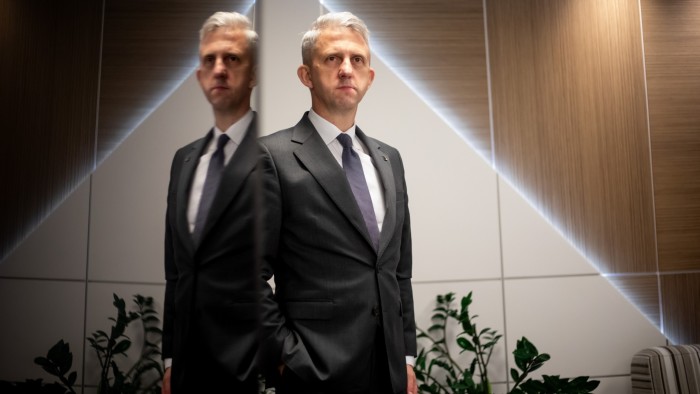Unlock the Editor’s Digest for free
Roula Khalaf, Editor of the FT, selects her favourite stories in this weekly newsletter.
Poland’s largest chemicals company, Grupa Azoty, is exploring a sale of its German fertiliser business to shore up its finances as it continues to struggle with cheap competition from Russia and Belarus.
In an interview with the Financial Times, chief financial officer Andrzej Skolmowski said the state-controlled company could return to positive ebitda this year, but he acknowledged that Azoty still faced a liquidity shortfall and debt problems. In October, Azoty reported a third-quarter loss of 226mn zlotys (€53mn), compared with a loss of 743mn zlotys in the same period a year earlier.
While Azoty’s problems have been particularly acute, other European chemical companies have also struggled with weak demand and high energy prices. In September, Dutch company OCI sold its methanol business as part of a break-up plan. Last year, ExxonMobil and Sabic also closed some of their European ethylene facilities while US group LyondellBasell put its entire European operations under review.
In 2018, Azoty strengthened its position as one of Europe’s largest producers of fertilisers by buying German company Compo for €235mn. While no final decision has been taken, Skolmowski said Compo could be divested.
“Compo was acquired a few years ago in a different situation for Grupa Azoty and currently we think much more from the cash point of view,” he said. “I don’t want to talk about the price of Compo because it depends of course on the offer.”
Azoty’s woes have also prompted the Polish government of Prime Minister Donald Tusk to demand much tougher EU restrictions on Russian and Belarusian exports of potash.
The EU has already imposed sanctions on this key fertiliser ingredient since Russia’s full-scale invasion of Ukraine in 2022. While tougher measures were discussed in November, the Poland-led drive for higher tariffs faces stiff resistance from southern EU countries and some other member states worried about production costs for their farmers.
Skolmowski argued that support for EU fertiliser producers should be “part of our food security”.
After Tusk’s election win over the Law and Justice (PiS) party and return to office in late 2023, Skolmowski was one of a handful of senior managers to be reappointed to Azoty with the task of turning it around.
Azoty has 11.5bn zlotys of debt, compared with none in 2015 when PiS came to power and replaced the management of Azoty and other state enterprises.
Almost one-third of this debt relates to an unfinished polymer production project near the north-western town of Police, which also includes port infrastructure. In September Azoty started talks with Orlen, Poland’s national oil and gas company to help it complete Police, which is Azoty’s largest-ever project.
While Orlen could help with Police, it also added to Azoty’s problems when it expanded into fertilisers under the previous government, Skolmowski said. “We have a surplus of fertilisers in our small market and even knowing that, another state-owned company decided to increase capacity.”
Azoty’s restructuring will “for sure” require job cuts among its 14,500 employees, Skolmowski said, but the numbers “will depend on which part of our business will stay and in which reconfiguration”.
After Azoty’s listing in 2009 on the Warsaw stock exchange, the Polish government helped it thwart a hostile takeover attempt by Russian competitor Acron in 2012.
Acron is owned by Viatcheslav Kantor, who still has a 19 per cent stake in Azoty. However, he was put on an EU sanctions list after Russia’s invasion of Ukraine in 2022 and the Polish government froze his stake in Azoty.
“I have to be honest, he’s done nothing against the company directly as a shareholder but we compete with Acron in the markets,” Skolmowski said.


